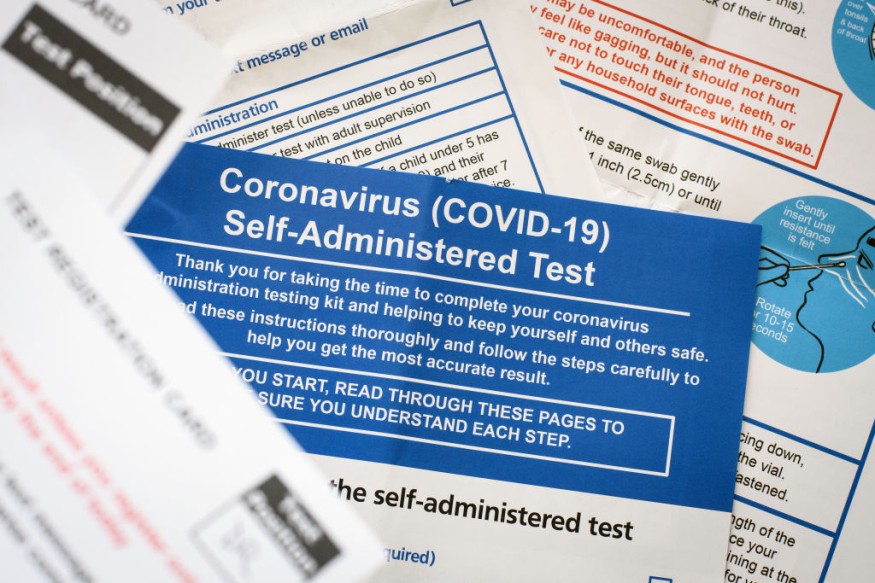
The planet has not contained the outbreak of COVID-19 that has killed more than 85 million citizens worldwide so far. However, it faces a more infectious version of the lethal virus, which could cause a 'very, very bad' wave.
The latest COVID-19 variant, identified as B.1.1.7, was first observed in the UK in September. About a quarter of the confirmed cases of COVID-19 in the country in November were identified to be new strains of SARS-CoV2, the virus causing COVID-19.
Health researchers have said that viruses mutate spontaneously. Earlier, scientists said they found small coronavirus variations that did not greatly impair their capacity to transmit or induce disease.
The BBC confirmed that in most corners of the world, the virus first observed in Wuhan, China, was not the same strain that was detected. Experts have seen 12,706 SARS-CoV2 mutations yet. In these, it was observed that 398 strains of the novel coronavirus appeared frequently and separately.
Jeremy Farrar, an infectious disease expert who heads the Wellcome Trust, told ScienceMag B.1.1.7 might be the dominant global version with its higher transmission and would push another very, very bad wave. Farrar added that the planet is now entering an uncertain era.
Here's what we learned so far about the latest coronavirus variant.
Why Does the UK Version Trigger a Lot of Concern?
Health specialists in the United Kingdom and the United States said the strain tends to be more quickly contaminated than some, although there is no proof that it is more lethal.
Patrick Vallance, the British government's chief science officer, said that the strain "moves quickly and becomes the dominant variant," triggering by December in London over 60% of infections.
The strain is also notable because it has almost two dozen mutations. Those mutations are on the spiky protein used by the virus to bind cells to and kill them. The spike is the focus of current vaccinations.
Dr. Ravi Gupta, who studies viruses at the University of Cambridge in England, said it's too premature to tell how significant it would eventually prove to be.
Gupta and other researchers written a commentary on a forum used by scientists to rapidly share developments, but the article was not officially checked or released in a journal.
MK LHL testing data showing increasing prevalence of H69/V70 variant in positive test data - which is detected incidentally by the commonly used 3-gene PCR test. pic.twitter.com/1U0pVR9Bhs
— Tony Cox (@The_Soup_Dragon) December 19, 2020
Why Are New Strains Occurring?
In their genetic alphabet, viruses sometimes acquire minor modifications of a letter or two only by natural development. A subtly tweaked strain can become the most prevalent one in a nation or area just because it is the strain that first took possession of it or because it was encouraged to become ingrained through super spreader incidents.
A bigger problem is whether a virus mutates to help it escape from medications or the immune system by modifying the surface's proteins. Emerging data indicates that the current coronavirus could be beginning to occur, said Trevor Bedford, a scientist and genetic researcher at the Seattle Fred Hutchinson Cancer Research Center.
In his Twitter account, Bedford said experts have now seen the appearance and dissemination of many strains that signify this, and some display susceptibility to treatment with antibodies.
We've now seen the emergence and spread of several variants that may have some antigenic impact. These variants are generally labeled based on the mutation to the SARS-CoV-2 spike protein. For example N439K has a change from asparagine (N) to lysine (K) at site 439 in spike. 9/18
— Trevor Bedford (@trvrb) December 19, 2020
What Other Viruses Have Arisen?

Researchers in Sweden identified a virus in April with two genetic variations that seemed to render it nearly two times more contagious, Gupta said. About 6,000 cases have been recorded worldwide, he said, mainly in Denmark and England.
There have now been some variants of that strain. These have been identified in individuals who obtained them from Denmark's mink farms. The two modifications have been observed previously in a modern South African strain and several others.
Gupta said that the UK strain has two mutations and more, like eight to the spike protein. Since its meaning is not yet understood, it is considered a "variant under investigation."
The strain was discovered in September in southeastern England and had since been circulating in the region.
Check out more news and information on COVID-19 on Science Times.











